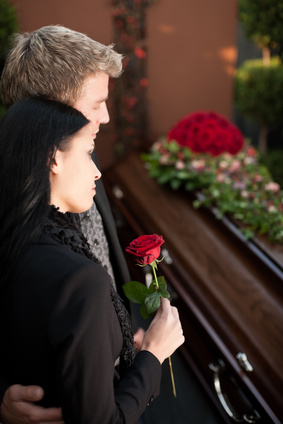Death is well known as one of the top three traumas that a person can experience. When a person close to you dies, the impact of the shock affects you as a "person in total". "Person in total" means that it can affect every part of your life (or at least some parts). Examples of these parts are:
Emotional being
- anxiousness / aggressiveness / having a bad feeling in your stomach / dry mouth / hypersensitive for noises
Physical state
- without any feelings / alone / shocked / guilty
Social state
- irritated between people (even between friends) / withdraw into yourself / want to be left alone
Thoughts
- confused / forgetful / problems to concentrate / dreaming / feels the presence of your loved one
Behaviour
- sleeping problems / restless / change in eating patterns / tearful / avoid memories of your loved one.
How to handle a grieving person:
Emotional being
- anxiousness / aggressiveness / having a bad feeling in your stomach / dry mouth / hypersensitive for noises
Physical state
- without any feelings / alone / shocked / guilty
Social state
- irritated between people (even between friends) / withdraw into yourself / want to be left alone
Thoughts
- confused / forgetful / problems to concentrate / dreaming / feels the presence of your loved one
Behaviour
- sleeping problems / restless / change in eating patterns / tearful / avoid memories of your loved one.
How to handle a grieving person:
| DONT'S - talk too much (to hide your own uncertainties) - say things like: * God has picked the most beautiful flower in the garden; * - your'e parent was old, it's not so bad - things will get better - pull yourself together - handle your friend different from what you did in the past (he has a need to be treated as normal) | DO'S - Just be there: give a hug (don't say anything, because you are probably as stunned as the grieving person himself - visit the grieving person again in future (he'll need you even more than now) - let him know on special days, for example his loved one's birthday / Christmas, that you think of him (not just a once off) - invite your friend for a coffee / nice outing (keep on asking - even if he refuses to go; tell him that you really want to have coffee with him) |
Next time I'll talk about 7 ways to deal with your own grieving process.
Keep well!
Keep well!


 RSS Feed
RSS Feed
